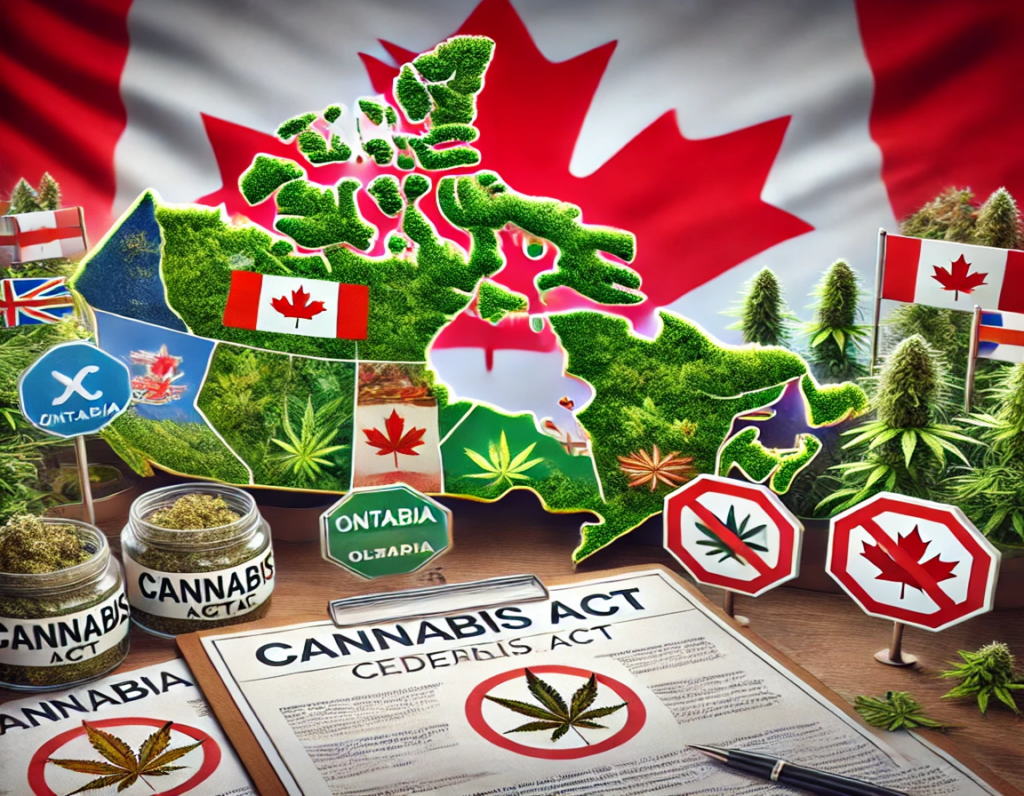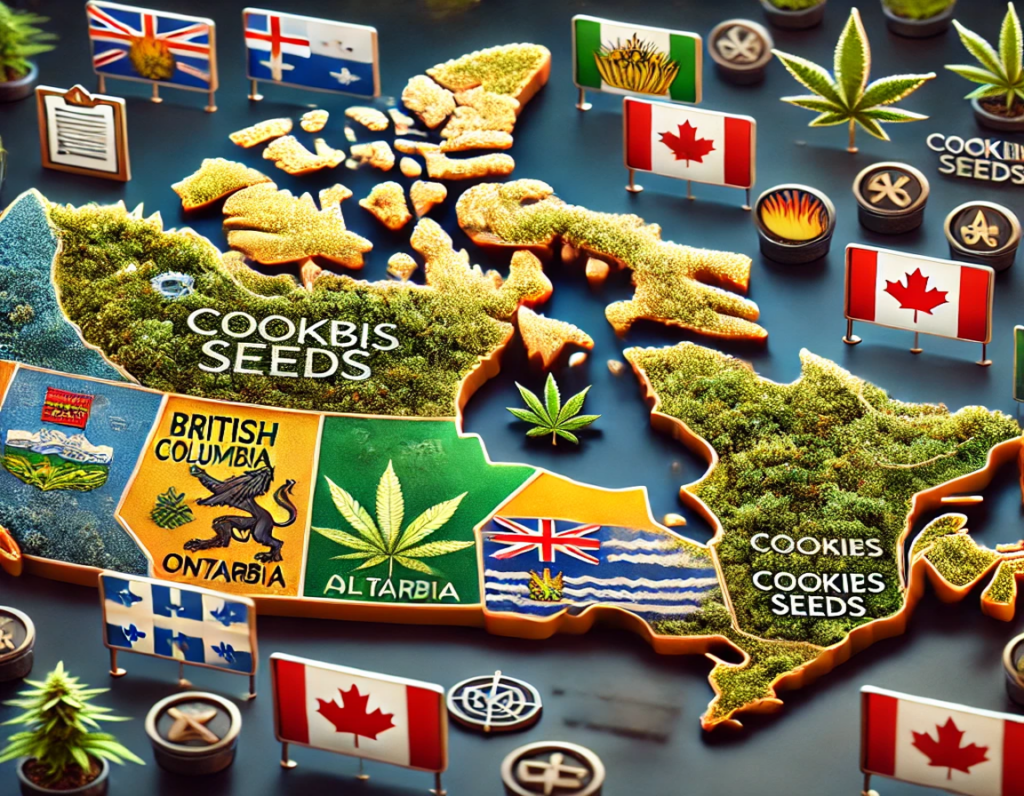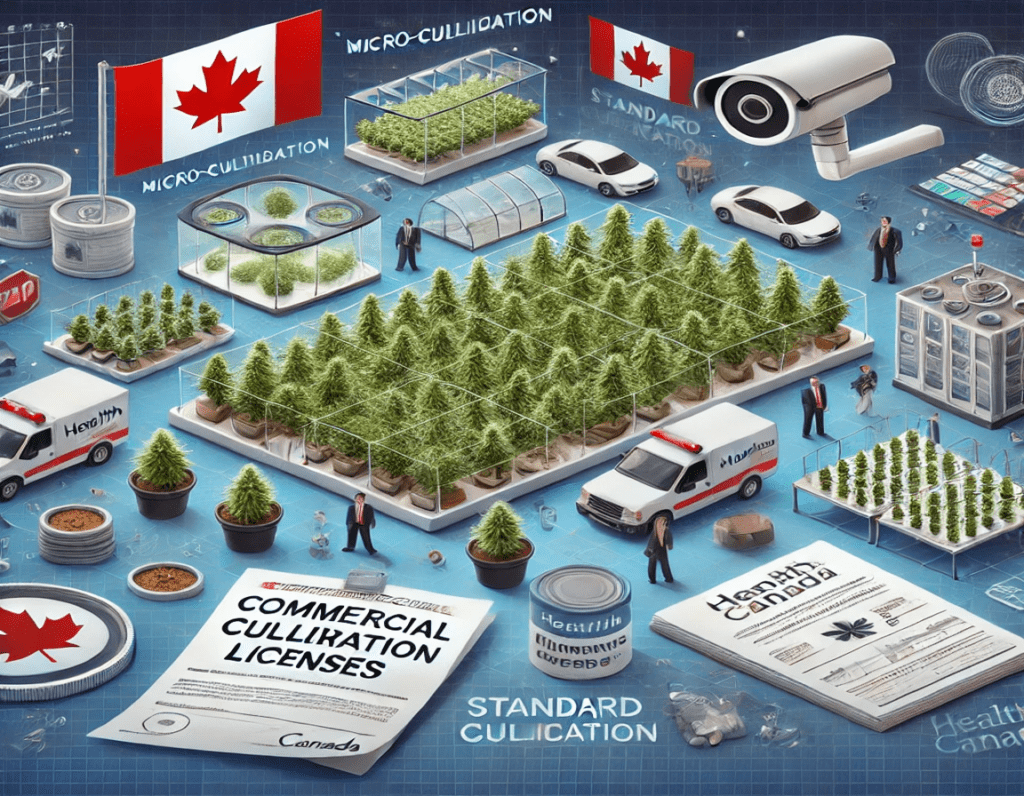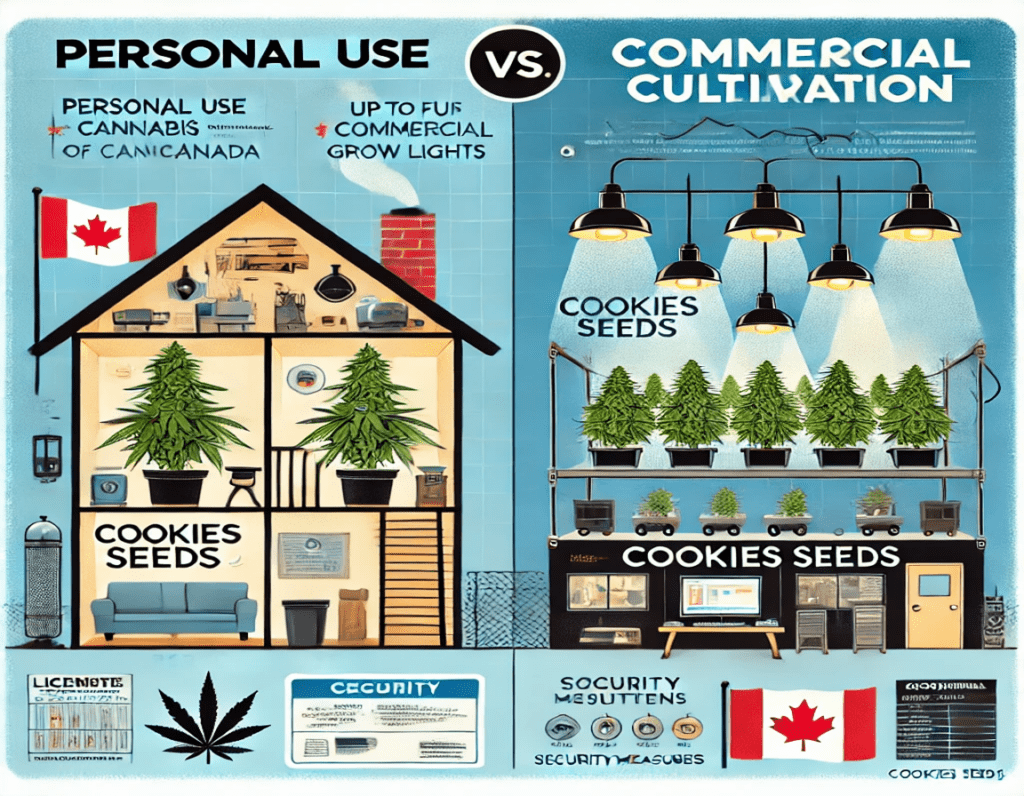
Canada’s federal Cannabis Act, enacted in 2018, allows adults across the country to legally grow cannabis for personal and commercial use. Under this law, adults can cultivate up to four cannabis plants per household for personal use. This applies to growing Cookies Seeds as well, but provincial and territorial regulations can alter this framework, sometimes making it more restrictive. While some provinces follow federal law closely, others, like Quebec and Manitoba, have banned home cultivation altogether.
It’s critical to be aware of the specific rules in your province or territory to avoid fines or legal issues. For example, while federal law is clear about allowing personal cultivation, Manitoba has instituted fines of up to $2,542 for cultivating cannabis at home. Quebec’s laws are similarly strict, but legal challenges continue to question these provincial restrictions.
Staying informed about the ever-evolving legal landscape is key for Canadian Cookies Seeds growers. While the federal framework provides broad permissions, local restrictions and bylaws often impact what you can legally do as a cultivator in your area.

In Canada, provincial governments have the authority to impose their own cannabis cultivation regulations, often differing from federal standards. Some provinces offer more lenient rules, while others have strict limitations or outright bans on home growing.
One of the most permissive provinces, British Columbia allows adults to grow up to four plants for personal use as long as they are not visible from public spaces. This means growing Cookies Seeds outdoors is possible with adequate discretion.
Ontario follows federal guidelines closely, allowing adults to cultivate up to four plants. However, local housing agreements, such as those for renters or condo dwellers, can restrict or outright prohibit home growing.
Both provinces have banned home cultivation of cannabis, even for personal use. Legal battles have challenged these bans, with the argument that they contradict federal law, but as of now, these restrictions remain in place. Growing Cookies Seeds in either of these provinces could lead to steep fines or other legal consequences.
Home growing is allowed here, with the same four-plant limit, but local regulations may impose additional guidelines. Alberta requires that plants be grown indoors or in spaces that are not visible from public areas.
Understanding these varying laws is essential if you’re considering cultivating Cookies Seeds. Knowing local bylaws can help you navigate the complexities of Canadian cannabis cultivation and avoid any potential legal issues.

For those interested in expanding from personal cultivation to commercial production, obtaining the appropriate license is critical. In Canada, two primary licenses govern commercial cannabis cultivation: the micro-cultivation license and the standard cultivation license.
Designed for small-scale producers, the micro-cultivation license limits the size of your growing area to 200 square meters. This is a popular option for those looking to focus on smaller, high-quality batches of cannabis, including Cookies Seeds. The licensing process includes submitting security plans, background checks, and adhering to strict plant tracking and record-keeping regulations.
This license allows for larger-scale cannabis production without restrictions on growing space, making it ideal for commercial operations aiming to produce at high volumes. However, the requirements are more stringent, including enhanced security measures and regular inspections.
Both licenses require compliance with Health Canada’s detailed regulations, and the application process can take several months to complete. As of 2023, more than 500 licensed producers operate across Canada, including micro-cultivators who have found success with niche strains like Cookies Seeds. For those pursuing commercial opportunities, staying informed about the latest licensing updates and regulatory changes is crucial.

For personal cannabis cultivation in Canada, adults are allowed to grow up to four plants per household, provided that provincial and municipal laws align with federal guidelines. Growing Cookies Seeds for personal use does not require any special licensing, as long as the cultivation is strictly for personal consumption and the plant count is within the legal limit. However, the sale of homegrown cannabis is prohibited under the Cannabis Act.
Provincial regulations may impose stricter rules than federal law. For instance, Quebec and Manitoba have banned personal cultivation altogether. In other provinces, additional rules may apply, such as restrictions on growing plants in visible locations or specific zoning laws. Personal cultivators should always verify their local laws to ensure compliance.
Commercial cannabis cultivation in Canada is heavily regulated and requires obtaining a license through Health Canada. Growers must choose between a micro-cultivation license (for smaller-scale operations) or a standard cultivation license (for large-scale production). Both types of licenses come with strict requirements regarding security, record-keeping, and adherence to cannabis production standards.
Commercial growers also face more complex legal obligations, including compliance with packaging, marketing, and distribution regulations. Operating without a proper license or violating Health Canada regulations can result in severe penalties, including business closure, hefty fines, or even criminal charges. Commercial cultivation also requires significant investment in security measures and regular inspections to ensure ongoing compliance with the law.

Cannabis laws in Canada are subject to ongoing changes as the market evolves, and staying informed is critical to ensure compliance with local, provincial, and federal regulations. As new court rulings are made and laws are amended, Canadian cannabis growers need to remain vigilant about staying updated on any legal changes that could impact cultivation.
Here are some effective ways to stay informed:
Checking federal and provincial government websites regularly is a reliable way to stay up to date on new cannabis laws and regulations.
Join legal cannabis forums or subscribe to cannabis law newsletters to receive real-time updates and insights. These platforms often provide analysis of how legal changes could affect growers.
If you’re uncertain about specific regulations or are planning to transition from personal to commercial cultivation, consulting a lawyer who specializes in cannabis law can provide clarity and guidance.
By staying updated on legal developments, Canadian growers can avoid fines, penalties, and other legal risks. Whether you’re growing Cookies Seeds for personal use or planning a commercial operation, being proactive about understanding the law is key to long-term success.
No, provinces like Quebec and Manitoba have banned home cultivation, even though it’s permitted under federal law. Always check provincial regulations before growing.
Under federal law, you can grow up to four plants per household for personal use. However, provincial laws may vary, and some may have additional restrictions.
Penalties vary by province. In Quebec, fines for illegal cultivation can range from $250 to $750 per plant, and in Manitoba, fines can exceed $2,000 depending on the violation.
Yes, a license is required for any commercial cannabis cultivation in Canada. You must apply for either a micro-cultivation or standard cultivation license through Health Canada.
Stay informed by checking government websites, joining cannabis forums, or consulting with a lawyer who specializes in cannabis law.
Yes, personal cultivation is limited to four plants and doesn’t require a license, while commercial cultivation requires strict regulatory compliance and licensing from Health Canada.
We ship and deliver world wide via USPS and various couriers.
We offer a wide range of secure and anonymous online payment options.
We care about you, our customer. Please contact us with any questions or concerns.
Find out more about the benefits of being a loyal and regular customer.
WE ARE EVERY GROWERS ONE STOP SHOP TO ACQUIRE PREMIUM CANNABIS SEEDS FOR SALE IN THE USA, CANADA AND AUSTRALIA

Farmers Lab Seeds 2024, | All Right Reserved
Seeds are sold as novelty items, souvenirs, and collectibles. They contain 0% THC. We encourage our customers to check the legislation in their Country, State, Province, and Municipality prior to purchasing items from our store. We do not provide growing information.
All seeds are sold as hemp, and lab tested under 0.3% THC. This product is not for use by or sale to persons under the age of 21. This product should be used only as directed on the label. It should not be used if you are pregnant or nursing. Consult with a physician before use if you have a serious medical condition or use prescription medications. A Doctor’s advice should be sought before using this and any supplemental dietary product. All trademarks and copyrights are property of their respective owners and are not affiliated with nor do they endorse this product.
These statements have not been evaluated by the FDA. This product is not intended to diagnose, treat, cure or prevent any disease. Individual weight loss results will vary. By using this site, you agree to follow the Privacy Policy and all Terms & Conditions printed on this site. Void Where Prohibited by Law.